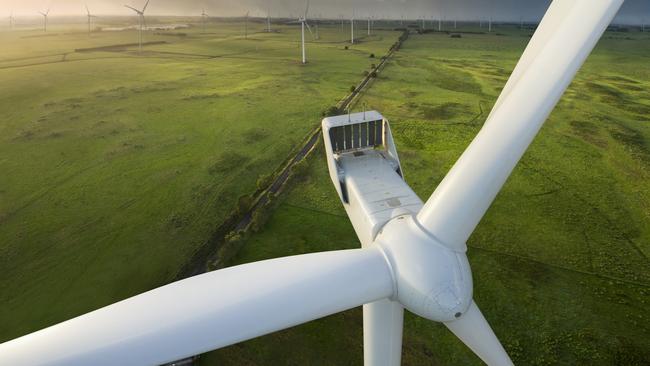Woodside and Santas named as poor climate performers in Climate Action 100+ global study
Almost none of the nation’s top emitting companies have set targets for a safe climate trajectory, according to a global study.

The world’s largest investor engagement initiative on climate change has singled out Woodside and Santos as among the worst climate performers in Australia and globally.
While Boral was commended for setting a net zero target consistent with limiting global warming to 1.5C, Climate Action 100+ said almost none of the 14 Australian firms in the focus list of 166 companies had set targets for a safe climate trajectory.
In addition, capital expenditure patterns were not aligned to the targets they actually had set.
Rebecca Mikula-Wright, chief executive of the Investor Group on Climate Change which is on the Climate Action 100+ steering committee, said investors had a common goal to achieve short, medium and long-term sustainable returns.
But they also needed to see companies managing and adapting to the increasing climate risks, and being successful in the transition by seizing opportunities.
“Net zero goals are the minimum expectation, and now investors need to see companies making faster progress executing their decarbonisation plans,” Ms Mikula-Wright said.
Andrew Gray, director of ESG and stewardship at the nation’s biggest superannuation fund AustralianSuper, said the current climate trajectory was a systematic risk to investment portfolios and long-term returns to beneficiaries.
This required intensified engagement from investors, calling for near-term action from companies.
“Long-term engagement works and accountability is key,” Mr Gray said.
The so-called benchmark initiative is a yearly assessment of companies on the focus list from a climate perspective, with institutional investors engaging with the world’s largest emitting companies in the hardest-to-abate sectors.
The IGCC, which represents local and NZ investors with $3.6 trillion under management, is the local facilitator.
Climate Action 100+ has 700 signatories responsible for $US68 trillion ($90 trillion) in assets under management.
The benchmark assesses companies across disclosures and target-setting for decarbonisation, including net zero by 2050 targets and short, medium and long-term reductions in greenhouse gas emissions.
It also examines auditing and accounting and climate policy engagement.
Assessments relevant to particular sectors are conducted as well, such as emissions intensity for aviation.
Among the findings were that 69 per cent of focus companies were now committed to achieving net zero emissions by 2050 across all or some of their emissions footprints, a 17 per cent increase on last year.
About 90 per cent of companies had some level of board oversight of climate change, and 89 per cent had committed to align their public disclosures with the internationally recognised task force for climate-related financial disclosures.
However, Climate Action 100+ said it was “alarming” that the vast majority of companies had not set medium-term emissions reduction targets aligned with 1.5°C or fully aligned their future capital expenditure with the goals of the Paris Agreement, despite the increase in net zero commitments.
Only 17 per cent of focus companies had set medium-term targets aligned with the International Energy Agency’s 1.5C scenario and covered all material emissions.
Further, just 42 per cent of companies had comprehensive net zero by 2050 commitments covering all material greenhouse gas emissions, including indirect, or Scope 3, emissions.
No company at all had demonstrated that its financial statements were drawn up using assumptions consistent with net zero by 2050.
Climate Action 100+ said these results were disappointing, as they showed the translation of commitments into action.
“They also come among broader evidence that the world is failing to step up to the meet the challenges of the growing climate crisis,” the group said.
Investors, it said, were expected to escalate pressure on companies and boards during the upcoming proxy season in the US and Europe, following last year’s record high majority votes on climate proposals.
The statement said it was critical for investors to support key climate shareholder resolutions in the next several months.


